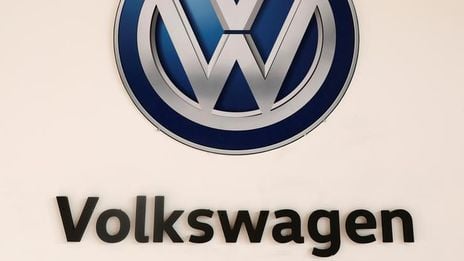The move underlines how much relations between management and workers have soured at Europe's biggest carmaker, which is struggling to raise profits amid stagnating emerging markets and low growth at home.
The cost-cutting target itself still stands, however, the sources said.
VW and McKinsey declined to comment.
Late last month, Chief Executive Officer Martin Winterkorn told employees he was looking for 5 billion euros worth of efficiency gains at its core passenger-car brand by 2017, as VW seeks to close the profit gap with rivals.
According to the sources, managers then commissioned McKinsey to help implement cost cuts at VW, a company at which employees enjoy multiyear job guarantees.
McKinsey had been tasked by management with drawing up a framework to help the Wolfsburg, Germany-based company make the savings. Although plans were not yet at an advanced stage, labour representatives balked at the appointment of the management consulting firm, and demanded they be removed, sources said.
VW had commissioned McKinsey without first consulting staff representatives, a step that the company's powerful works council felt ran counter to the spirit of co-determination between management and labour, said one of the sources who is familiar with the matter.
"We know too well what the priorities of McKinsey are: They're preoccupied with cutting the headcount in production," the source further said.
Labour leaders feared that McKinsey would oversee efficiency-boosting steps at the German plants in Kassel and Wolfsburg, the source said. Wolfsburg is located in Lower Saxony, and is VW's biggest factory worldwide, employing over 50,000 workers who assemble the Golf, Tiguan SUV and Touran MPV models.
The Kassel factory has a workforce of 15,000 people who make components and transmissions which some analysts have said could be made more profitably by suppliers.
VW's works council chief Bernd Osterloh was concerned McKinsey would lead VW to unduly focus on lowering the headcount in production in Germany rather than reining in spending on research and development costs, which have surged 80 percent since 2010.
VW labour leaders would also rather cut costs by reviewing the group's mega 310-model lineup with the goal of ceasing unprofitable models, the source said.
Labour leaders have considerable clout at VW, where together with the State of Lower Saxony, they effectively control the supervisory board, or board of directors, the body which appoints members of the management board. The federal state's representatives often join forces with companies on its patch to protect local jobs.
The clash forms part of a broader split between management and Osterloh, who warned that the cuts "will not be a walk in the park. It's already clear now that one or two issues will be particularly hard fought."
In recent weeks Osterloh has taken great pains to underline the importance of co-determination between labour and management while speaking at Union gatherings held in German factories.
"Contrary to most other companies, changes of major significance at VW are not simply announced. Workers at VW are not presented with a fait accompli, but in fact management walks up to workers and ties them in," he told workers at one recent assembly.
Labour leaders have helped scupper cost cut plans in the past. Former VW Group Chief Executive Officer Bernd Pischetsrieder and former VW brand chief Wolfgang Bernhard - a former McKinsey consultant - were both effectively ousted after clashing with labour leaders over cost plans.
In another setback for its drive toward higher profits, VW last week replaced its production chief Michael Macht after a new modular vehicle design platform failed to translate into higher profits at its main factory in Wolfsburg, Germany.
Rather than creating greater efficiencies in production, the new vehicle assembly method used on VW's flagship Golf model has caused costly overtime work and delays, leading the company to report a drop in operating profit.
(Reporting by Edward Taylor, Andreas Cremer, Irene Preisinger; Editing by Maria Sheahan, Sophie Walker and Lisa Shumaker)
By Edward Taylor and Andreas Cremer






